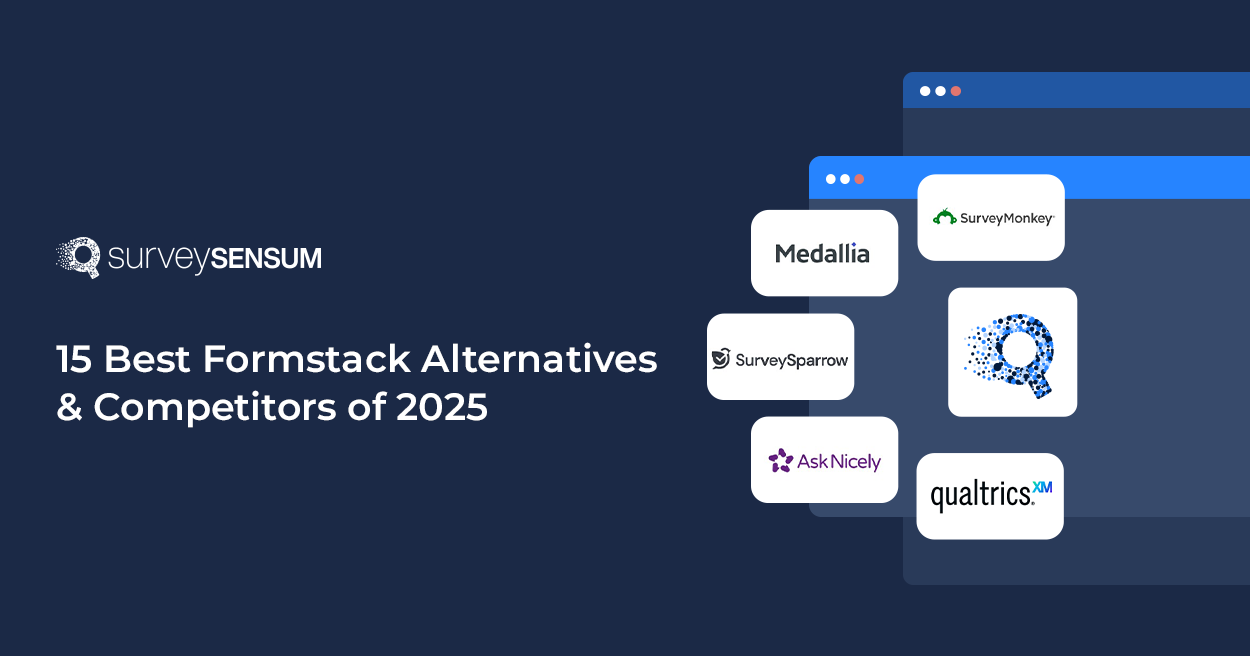
setting up an LLCTrust in a brand is not merely beneficial; it is crucial for a startup’s survival and growth. Research indicates a customer trust directly correlates with brand loyalty. And loyal customers make purchases 90% more often and are inclined to spend more during each transaction, contributing to better cash flow for the brand.
Transparency, quality, and authenticity are pillars on which a startup can build a foundation of trust. Through strategic efforts that range from forming authentic connections with clients to aligning products with consumer values, startups can position themselves as credible alternatives to the tried-and-tested giants of their industries. It is these qualities, communicated effectively and honestly, that can elevate a startup to become a respected and successful personal brand in the eyes of its target audience.
This article discusses 7 proven methods for establishing a trustworthy brand for your startup. Let’s get started!
Why is Customer Trust Important for Startup Brands?
Customer trust is an indispensable asset for startup brands, forming the foundation for customer retention. When customers trust a startup, they are more likely to make repeat purchases and become long-term patrons. This loyalty is not just about repeat business; it also fosters a formidable defense against the fierce competition in the market. In this regard, customer service managers play a critical role in nurturing trust and loyalty among customers, thereby contributing to the startup’s success and competitiveness in the marketplace.
Here are some more reasons why customer trust is extremely important for startup brands:
- Trust as a Competitive Advantage
In the highly competitive market, startups that earn customer trust differentiate themselves from rivals. Trust is not easily gained but can be a distinguishing factor that sets a business apart, resonating deeply with consumers and potentially leading to market leadership.
- Brand Reputation and Growth
The impact of trust on brand reputation cannot be overstated. Happy customers often turn into brand advocates, sharing their positive experiences and thus amplifying the brand’s visibility and credibility. For startups, where marketing budgets are typically restricted, this organic growth is invaluable and can lead to significant increases in revenue and market share.
It’s clear that consumer confidence in a brand is not merely a nicety but a critical component of a successful business strategy.
As we’ve explored the profound impact that trust can have on a brand’s reputation and its organic growth potential, let’s move on to the actionable strategies that can establish this trust.
7 Proven Methods for Establishing a Trustworthy Startup Brand
Here are the seven proven methods that can guide your startup toward establishing a brand that resonates with credibility and reliability in the eyes of your customers.
1. Authenticity and Transparency
Authenticity acts as the cornerstone of a trustworthy brand. A startup should maintain an unwavering dedication to being honest about its products and services, illustrating its commitment to quality and value. This can manifest through clear product descriptions, accreditations, and, crucially, managing customer expectations accurately.
Transparency is equally vital. Openly discussing business practices and making the operational aspects of a startup visible foster trust. For startups, establishing clear pathways like setting up a transparent LLC operating agreement ensures legal compliance and operational clarity. However, it is not required for all states to have an operating agreement except for LLCs operating in California, Delaware, Maine, Missouri, and New York. This fundamental step underscores commitment to transparency, quality, and authenticity—strengthening trust with your target audience. Additionally, understanding the tax classification for LLCs can help startups make informed decisions about their tax strategy and ensure compliance with state and federal regulations. Furthermore, while forging a genuine connection with your target audience, consider providing clear paths to essential business tools. One fundamental step for startups is to set up an operating agreement for LLC, ensuring legal compliance and structure within their operations. Additionally, utilizing a virtual business address can enhance professionalism and maintain privacy. Making these resources accessible underscores a startup’s transparency and commitment to quality. Proactive disclosures about sourcing materials, production methodologies, or business ethics can elevate the brand’s credibility. Implementing a client portal software for accountants within a startup also ensures transparency, enabling secure and open communication channels between the firm and its clients.
Different states have different requirements for compliance and reporting. For instance, there are state-specific requirements to consider when setting up an LLC in New York. Businesses in New York are subject to the New York LLC Transparency Act. One of the requirements is to disclose certain information about the LLC’s Beneficial Owners. There are also higher NY LLC costs associated with annual reporting fees and higher initial formation costs.
Moreover, a startup’s history, the vision behind its formation, and its cultural ethos contribute to the sharing of the brand’s story and values. Your values and story can be presented in your name; consider using a business name generator to have a name that will creatively convey your brand values. Articulating why the startup was founded, the problems it aims to solve, and how it intends to evolve resonate with customers seeking genuine connections. This can be showcased through:
- Founder Narratives: Relating personal stories and motives.
- Value Statements: Boldly stating what the startup stands for.
- Community Involvement: Demonstrating engagement beyond business, emphasizing social responsibility.

2. Quality and Consistency
To ensure a strong reputation, startups must prioritize high-quality offerings. This involves rigorous testing of products and meticulous service training to guarantee customer satisfaction. Quality should be at the forefront of a startup’s mission, as it is a critical component in fostering customer trust and loyalty.
When it comes to consistency in product and service delivery, establishing clear standards is key. Customers expect a reliable brand experience each time they interact with the startup. Whether it is the product features, customer service, or the user interface, uniformity breeds familiarity, which in turn builds trust.
Building a reliable brand experience also extends to marketing and communication efforts. A startup’s message and visual identity should align across all platforms to create a cohesive brand image. This helps in reinforcing brand recognition and trustworthiness.
Here are some actionable steps to enhance quality and consistency:
- Quality Control: Implement checks at multiple stages of product development and after-service delivery.
- Training: Invest in regular employee training to ensure service standards are met.
- Feedback Systems: Establish mechanisms to collect and act on customer feedback promptly.
- Brand Guidelines: Develop and adhere to comprehensive brand guidelines regarding aesthetics, voice, and core values.
Each interaction is an opportunity to reinforce the startup’s commitment to excellence. By upholding high standards and ensuring consistency, startups can cultivate a brand that consumers trust and advocate for.

3. Customer Feedback and Engagement
Establishing a trustworthy startup brand depends on a company’s capacity to encourage and value customer feedback. Accepting and implementing customer feedback can enhance brand loyalty in 77% of customers. This involvement indicates that a brand cares about its customers’ experiences and is committed to continuous improvement.
Companies can engage with customers across various platforms, ensuring an open dialogue that helps tailor their products and services to meet consumer needs.
Here are the steps to create an effective customer feedback strategy:
Step 1: Encouraging Customer Feedback
- Ask directly: Proactively request feedback from customers through various channels such as email, website pop-ups, or in-person interactions.
- Gather open-ended feedback: Offer opportunities for customers to provide detailed feedback in their own words, either through comment boxes, suggestion forms, or dedicated feedback sections.
Step 2: Engaging with Customers
- Leverage a customer feedback platform: Invest in a robust feedback management system that allows for easy collection, analysis, and response to customer feedback in real-time.
- Foster two-way communication: Respond promptly to all customer feedback, whether positive or negative, demonstrating active engagement and a commitment to addressing customer concerns.
Step 3: Implementing Feedback
- Act on feedback: Prioritize and address customer feedback promptly to show customers that their opinions are valued and taken seriously.
- Close the loop: Follow up with customers who provided feedback to inform them of the actions taken as a result, closing the feedback loop and reinforcing the importance of their input.
- Adjust products and services: Use insights gathered from customer feedback to make tangible improvements to products, services, or processes, ensuring they better align with customer needs and preferences.
- Monitor outcomes: Continuously track the impact of implemented changes on customer satisfaction, loyalty, and retention metrics to gauge the effectiveness of the feedback-driven improvements.
By following these steps, companies can establish a comprehensive customer feedback strategy that not only encourages active participation from customers but also translates their insights into meaningful actions that drive positive business outcomes.
Gauge real-time feedback with SurveySensum
4. Social Proof and Testimonials

Leveraging social proof is a strategic approach for startups seeking to establish trust and credibility. Social proof encompasses showcasing positive customer reviews and testimonials, which serve as endorsements of a brand’s value from those who have experienced it firsthand.
Utilizing Customer Feedback:
- Compile and display raving reviews on the website.
- Dedicate sections for video testimonials to provide a personal touch.
- Include ratings and reviews on product pages to guide potential customers.
Companies can display selected testimonials prominently on their homepages or in social media campaigns to attract and reassure new customers.
Case Studies as Success Narratives:
- Publish detailed case studies on past successful projects.
- Offer real-life scenarios that demonstrate how your products or services solved specific problems.
The use of case studies in marketing provides potential customers with an in-depth view of how a startup’s offerings can result in real-world success, which conveys reliability and expertise.
Amplifying the Message:
- Regularly incorporate social proof into email marketing campaigns.
- Feature UGC videos on social platforms to showcase brand popularity.
By integrating social proof into various marketing and communications strategies, startups can narrate a persuasive and trustworthy brand story. These narratives not only showcase the brand’s strengths but also foster a community of engaged users whose shared experiences serve as a powerful tool for conversion and retention. Furthermore, keeping up with Gen Z media trends ensures that brands resonate with younger audiences by aligning their content and engagement strategies with current preferences.
5. Professional Online Presence
Creating a user-friendly and informative website is a cornerstone of building a professional online presence for startups. It’s essential to look for professional web development services that can provide a clear structure, intuitive navigation, and responsive design to ensure accessibility across devices.

Bonobos is known for its focus on providing a better fit for men’s clothing, and its website is designed to support this mission. The site features an intuitive navigation system that helps customers find products based on fit, style, or occasion.
In addition to this, you can also leverage ads strategically to enhance your online presence. The use of interstitials can significantly contribute to this aspect. These are the full-screen ads that offer a prime opportunity to capture the audience’s attention without disrupting their browsing journey.
Also, having active and professional social media accounts is vital for engaging with your target audience and building relationships. Startups should choose platforms where their audience is most active and maintain a consistent post schedule. Ensuring consistent branding across all online platforms solidifies the startup’s identity and promotes recognition. Visual elements like logos, color schemes, and typography should be uniform. Additionally, the security of your accounts on platforms like Facebook and Instagram is crucial to prevent unauthorized access. Ensure you access Facebook leads ad accounts safely to avoid potential breaches and safeguard your online assets.

Away, known for its stylish and functional luggage, maintains a sleek and consistent brand aesthetic across its digital presence. The brand uses a specific color palette, including its distinctive navy and other complementary colors, along with clean, modern typography and a consistent use of imagery that emphasizes travel and adventure, perfectly aligning with their tour management.
Consistency also applies to the voice and tone of the written content. This coherence presents a startup as dependable and makes the brand memorable. Regular audits can identify discrepancies and guide the necessary adjustments.
| Key Elements | Recommendations |
| Website | User-friendly, informative, SEO-optimized |
| Social Media | Active profiles, platform-tailored content, community interaction |
| Brand Consistency | Uniform visual identity, consistent voice across platforms |
6. Thought Leadership and Expertise
By sharing expertise through blogs, startups can demonstrate their depth of knowledge and insights into industry trends. Engaging content, from articles to podcasts and webinars, helps in attracting an audience that values informed perspectives. Your strategy can also incorporate more unusual formats. Try creating an infographic or a flipbook and adding it in the middle of your blog post to engage your readers even more.
Participation in industry events and discussions is equally important for a startup looking to build its brand. Startups should consider sending their experts to speak at conferences, or to contribute to panel discussions. Such interactions provide visibility and underline a startup’s commitment to its field.
Furthermore, by integrating services like data science consultancy, startups can address complex business needs, offering tailored insights and solutions that drive innovation and efficiency. This approach not only showcases their expertise in applying cutting-edge technologies but also highlights their ability to contribute practically to their client’s success.
Each of these methods contributes to the perception of the brand as a thought leader and as an entity that not only seeks success but also contributes to the growth and enrichment of its industry.
7. Ethical Practices and Social Responsibility
A startup should have a code of conduct that guides decision-making and holds everyone accountable. Several steps can be taken to ensure ethical standards:
- Transparency: Openly share business practices and policies with stakeholders.
- Integrity: Uphold promises and commitments to customers and partners.
- Compliance: Adhere to legal and industry regulations.
Social causes and sustainability are pillars that contribute to a startup’s reputation. Companies can engage in various initiatives:
- Partnering with non-profits or charities.
- Implementing green policies to minimize environmental impact.
- Promoting fair trade and ethical sourcing.
A brand that stands for more than just profit resonates with consumers and employees alike. It embodies values that go beyond the balance sheet, such as
- Community involvement: Investing time and resources locally.
- Employee welfare: Providing a positive and healthy work environment.
- Customer care: Ensuring satisfaction and value through honest marketing.
By integrating these practices into their core strategy, startups can develop a brand that is not only profitable but also contributes positively to society.
Key Takeaways
Establishing a trustworthy startup brand is a multifaceted endeavor that requires dedication, authenticity, and a deep understanding of customer needs. By implementing the seven proven methods discussed—startups can build a solid foundation of trust with their audience.
Remember, trust is not built overnight. It results from consistent effort in delivering quality, engaging with customers meaningfully, and standing firm on ethical grounds. By prioritizing these strategies, your brand can not only earn the trust of your customers but also turn them into loyal advocates.
SurveySensum
is verified as Herramientas de UX UI en Colombia
















